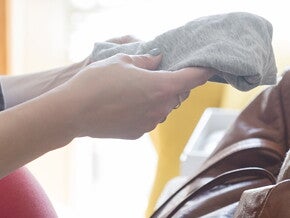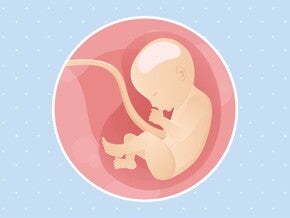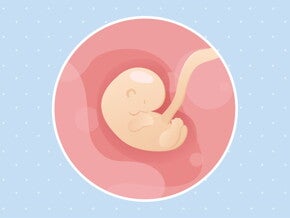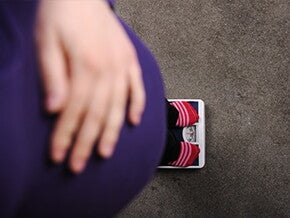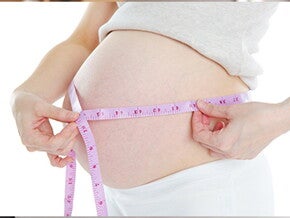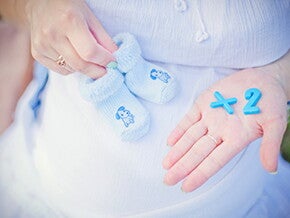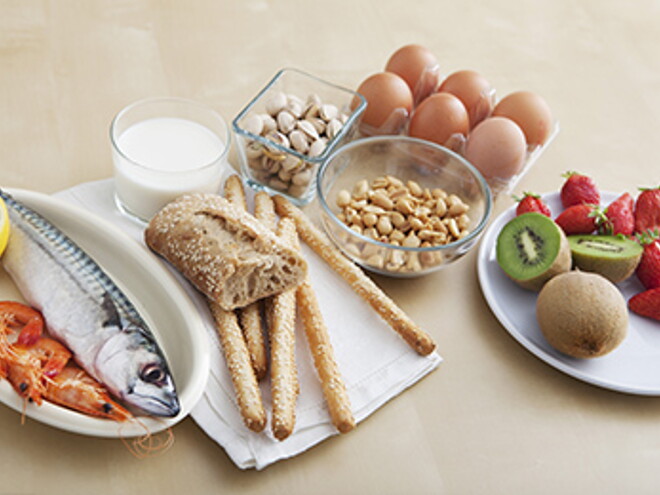
Calcium & Vitamin D in pregnancy
Calcium is essential for your baby's skeleton and your own. It should be consumed together with Vitamin D, which allows it to be absorbed by the bones. You will meet your calcium needs naturally if you maintain a varied, balanced diet rich in dairy products.
Why are Calcium and Vitamin D important?
Calcium helps build up your baby's bones, skeleton and teeth, making them denser and stronger. During the nine-month pregnancy period, your baby will accumulate a total of 30g calcium: this is equivalent to 100 glasses of milk! Your baby's needs will increase more during the course of the 3rd trimester of pregnancy.
Getting a sufficient supply of calcium is also important for preserving your bone capital: your baby's needs will take priority and will "exhaust" your reserves if you do not consume enough. This will also allow you to offer your baby richer mother's milk after the birth. Studies have also shown that calcium can even reduce the risk of suffering from the baby blues.
Vitamin D is important for fixing this calcium and constitutes the fulcrum of a balance between your bones and the development of the skeleton and teeth of your baby.
On my plate
Your calcium needs are estimated to be about 1000mg/day. This means, for example, that every day you can have:
- 2 glasses of maternal milk (low fat) or 1 serve (carton) of yogurt (low fat)
- + 1 slice of whole meal bread
- + 2 servings of cooked vegetables (e.g. kai lan, spinach, chye sim, etc.)
Other calcium food sources:
- Dried ikan bilis with bones
- Beancurd, firm (tau kwa)
- Cheese
- Canned sardines (with bone)
- Long French beans (cooked)
- Dried figs
- Apricot (dried)
- Papaya
Vitamin D is found in your food in small quantities, with the best sources being eggs or fatty fish such as salmon. Remember, Vitamin D is first and foremost produced by your skin in reaction to exposure to sunlight, so the easiest way is to get some sun!
Our practical suggestions
Some tips on increasing your Calcium and Vitamin D intake:
- Sprinkle parmesan over your pasta, as this cheese is rich in calcium (you’ll get about 70mg in in a single tablespoon!)
- Also think of adding dairy products when preparing food at home such as mashed potatoes, creamy pasta, pureed vegetable soups (leek or pumpkin), cheese on toast, yogurt cereals, etc.
- If you do not consume any dairy products, try to include beancurd or its products in your daily diet (e.g. soya milk, soya beancurd (tau huay) or pudding, etc.)
- Go for a walk whenever there is sunshine: your body can produce Vitamin D when it is exposed to sunlight. Try to let the sun shine on your arms and legs twice a week. Do protect yourself with sunscreen lotion and a hat and try not to go out in the sun between noon to 4pm.
- Consult your doctor about supplementing your diet with a maternal milk if in doubt of your calcium intake.


